This article was co-authored by Robert Dhir, MD. Dr. Robert Dhir is a board certified Urologist, Urological Surgeon, and the Founder of HTX Urology in Houston, Texas. With over 10 years of experience, Dr. Dhir’s expertise includes minimally-invasive treatments for enlarged prostate (UroLift), kidney stone disease, surgical management of urological cancers, and men’s health (erectile dysfunction, low testosterone, and infertility). His practice has been named a Center of Excellence for the UroLift procedure, and is a pioneer in non-surgical procedures for ED using his patented Wave Therapy. He earned his undergraduate and medical degrees from Georgetown University and was awarded honors in pre-medical studies, urology, orthopedics, and ophthalmology. Dr. Dhir served as chief resident during his urological surgical residency at University of Texas at Houston / MD Anderson Cancer Center in addition to completing his internship in general surgery. Dr. Dhir was voted Top Doctor in Urology for 2018 to 2019, one of the top three Best Rated Urologists in 2019 & 2020 for Houston Texas, and Texas Monthly has named him to the 2019 & 2020 Texas Super Doctors Rising Stars list.
There are 8 references cited in this article, which can be found at the bottom of the page.
wikiHow marks an article as reader-approved once it receives enough positive feedback. This article has 13 testimonials from our readers, earning it our reader-approved status.
This article has been viewed 2,413,019 times.
Premature ejaculation occurs when a man orgasms during sex sooner than he or his partner would like. Criteria for diagnosing this condition include that the man nearly always ejaculates within one minute of penetration or is almost never able to delay ejaculation. For most men the average time until ejaculation is about five minutes. Premature ejaculation affects many men and can lead to them feeling frustrated and embarrassed. Some men even try to avoid sexual intimacy because of it. However, it is treatable through counseling, using sexual techniques to delay ejaculation, and medications. By addressing the issue, you and your partner can enjoy sex.[1]
For personalized advice, take our Erectile Dysfunction Quiz to find out if you have ED and get access to quick and easy treatment options.
Steps
Using Behavioral Techniques
-
1Try the pause-squeeze method. If you and your partner are willing, you might try the pause-squeeze method for learning to delay ejaculation.[2] [3]
- Stimulate the penis without entering your partner. Notice when you are about to ejaculate.
- Ask your partner to squeeze your penis at the place where the head meets the shaft. Your partner should squeeze for several seconds until the need to ejaculate lessens.
- After 30 seconds, resume foreplay and repeat as necessary. This will help you to gain control and enable you to enter your partner without ejaculating immediately.
- Another variation on the pause-squeeze method is the stop-go technique. This is the same as the pause-squeeze method, except that the partner does not squeeze the penis.[4]
-
2Use self-help techniques. These are methods that you can do yourself that may help you to delay ejaculation:[5]
- Masturbate before sex. If you plan to have sex later in the evening, try masturbating an hour or two before.
- Use a thick condom that will reduce the amount of stimulation you get. This may make it take longer for you to climax. Avoid using condoms that are designed to increase your stimulation.
- Breathe deeply right before you ejaculate. This can help you to stop the ejaculation reflex. It may also help to switch to thinking about something boring until the urge passes.
-
3Change the position you have sex in. If you are usually on top, consider switching to the bottom or changing to a position that will allow your partner to move off of you if you are about to ejaculate.[6]
- Then resume sex once the urge to ejaculate has passed.
-
4Go to counseling.[7] You can do this either alone or with your partner. This can be helpful in dealing with:[8] [9] [10]
- Performance anxiety or other stresses in your life. Sometimes if men are concerned about being able to get or keep an erection, they may develop a pattern of ejaculating too quickly.
- A traumatic sexual experience when you were younger. Some psychologists believe that if your early sexual experiences included feeling guilty or a fear of being discovered, that you may have learned to ejaculate very quickly.[11]
- If you and your partner are having problems in your relationship, this may be a contributing factor. This could be the case if the problem is new and did not happen in previous relationships. If this is the case, couples counseling may be helpful.
-
5Try topical anesthetics. These medications are available by prescription or as over-the-counter as sprays or creams. You put them on your penis before sex and they reduce the sensations you feel, helping to delay the climax. Some men, and occasionally their partners as well, have reported a temporary loss of sensitivity and reduced pleasure. Common ones include:[12]
- Keep in mind that these topical options are not helpful for everyone.[13]
- Lidocaine
- Prilocaine
Getting Medical Help
-
1Go to a doctor if self help techniques didn’t work. Sometimes premature ejaculation is a symptom of another underlying problem that needs to be treated. Possibilities include:[14] [15] [16]
- Diabetes
- High blood pressure
- Alcohol or drug abuse
- Multiple sclerosis
- Prostate disease
- Depression
- A hormonal imbalance
- Problems with your neurotransmitters. Neurotransmitters are the chemicals that convey signals in your brain.
- Abnormal reflexes in your ejaculatory system
- A thyroid condition
- An infection in your prostate or urethra
- Damage from surgery or trauma. This is not common.
- An inherited condition.
-
2Ask your doctor about Dapoxetine (Priligy). This medication is similar to selective serotonin-reuptake inhibitor (SSRI) antidepressants, but it was created to treat premature ejaculation. It is a relatively new drug and is usually the first thing your doctor will try to treat this issue. If you are prescribed this medication, you will take it one to three hours before sex.[17]
- Do not take it more than one time per day. It may cause side effects including headaches, dizziness, and feeling unwell.
- It is not suitable for men with heart, liver, or kidney conditions. It may also interact with other medications, including other antidepressants.
- Other options include the SSRI's paroxetine, sertraline, fluoxetine, and citalopram.[18]
- The typical full effects of SSRIs (which are taken every day, not on-demand like Dapoxetine) are not seen until about two weeks after you begin use.
-
3Talk to your doctor about other medications that delay orgasms. These drugs have not been approved by the Food and Drug Administration for use in treating premature ejaculation, they are known to delay orgasms. Your doctor may prescribe them for you to take as needed or daily.[19]
- Other antidepressants. Possibilities include other SSRIs such as sertraline (Zoloft), paroxetine (Paxil), fluoxetine (Prozac, Sarafem) or the tricyclic clomipramine (Anafranil). Side effects may include nausea, dry mouth, dizziness, and reduced interest in sex.
- Tramadol (Ultram). This medication is used to combat pain. One of its side effects is that it can delay ejaculation. Other side effects include nausea, headaches, and lightheadedness.
- Phosphodiesterase-5 inhibitors. These medications are often used to treat erectile dysfunction. They include sildenafil (Viagra, Revatio), tadalafil (Cialis, Adcirca), and vardenafil (Levitra, Staxyn). Side effects include headaches, flushing, vision changes and a stuffy nose.
Expert Q&A
-
QuestionHow can you prevent premature ejaculation?
 Robert Dhir, MDDr. Robert Dhir is a board certified Urologist, Urological Surgeon, and the Founder of HTX Urology in Houston, Texas. With over 10 years of experience, Dr. Dhir’s expertise includes minimally-invasive treatments for enlarged prostate (UroLift), kidney stone disease, surgical management of urological cancers, and men’s health (erectile dysfunction, low testosterone, and infertility). His practice has been named a Center of Excellence for the UroLift procedure, and is a pioneer in non-surgical procedures for ED using his patented Wave Therapy. He earned his undergraduate and medical degrees from Georgetown University and was awarded honors in pre-medical studies, urology, orthopedics, and ophthalmology. Dr. Dhir served as chief resident during his urological surgical residency at University of Texas at Houston / MD Anderson Cancer Center in addition to completing his internship in general surgery. Dr. Dhir was voted Top Doctor in Urology for 2018 to 2019, one of the top three Best Rated Urologists in 2019 & 2020 for Houston Texas, and Texas Monthly has named him to the 2019 & 2020 Texas Super Doctors Rising Stars list.
Robert Dhir, MDDr. Robert Dhir is a board certified Urologist, Urological Surgeon, and the Founder of HTX Urology in Houston, Texas. With over 10 years of experience, Dr. Dhir’s expertise includes minimally-invasive treatments for enlarged prostate (UroLift), kidney stone disease, surgical management of urological cancers, and men’s health (erectile dysfunction, low testosterone, and infertility). His practice has been named a Center of Excellence for the UroLift procedure, and is a pioneer in non-surgical procedures for ED using his patented Wave Therapy. He earned his undergraduate and medical degrees from Georgetown University and was awarded honors in pre-medical studies, urology, orthopedics, and ophthalmology. Dr. Dhir served as chief resident during his urological surgical residency at University of Texas at Houston / MD Anderson Cancer Center in addition to completing his internship in general surgery. Dr. Dhir was voted Top Doctor in Urology for 2018 to 2019, one of the top three Best Rated Urologists in 2019 & 2020 for Houston Texas, and Texas Monthly has named him to the 2019 & 2020 Texas Super Doctors Rising Stars list.
Board Certified Urologist & Urological Surgeon If the above methods don't work, I suggest you talk to your doctor. Counseling or prescription medication, like SSRIs, may be able to help.
If the above methods don't work, I suggest you talk to your doctor. Counseling or prescription medication, like SSRIs, may be able to help. -
QuestionHow do I stop premature ejaculation?
 Chris M. Matsko, MDDr. Chris M. Matsko is a retired physician based in Pittsburgh, Pennsylvania. With over 25 years of medical research experience, Dr. Matsko was awarded the Pittsburgh Cornell University Leadership Award for Excellence. He holds a BS in Nutritional Science from Cornell University and an MD from the Temple University School of Medicine in 2007. Dr. Matsko earned a Research Writing Certification from the American Medical Writers Association (AMWA) in 2016 and a Medical Writing & Editing Certification from the University of Chicago in 2017.
Chris M. Matsko, MDDr. Chris M. Matsko is a retired physician based in Pittsburgh, Pennsylvania. With over 25 years of medical research experience, Dr. Matsko was awarded the Pittsburgh Cornell University Leadership Award for Excellence. He holds a BS in Nutritional Science from Cornell University and an MD from the Temple University School of Medicine in 2007. Dr. Matsko earned a Research Writing Certification from the American Medical Writers Association (AMWA) in 2016 and a Medical Writing & Editing Certification from the University of Chicago in 2017.
Family Medicine Physician When having sex have your partner perform the pause and squeeze procedure described in the article. This is when the partner squeezes the shaft of the penis until the need to ejaculate has passed.
When having sex have your partner perform the pause and squeeze procedure described in the article. This is when the partner squeezes the shaft of the penis until the need to ejaculate has passed.
References
- ↑ http://www.mayoclinic.org/diseases-conditions/premature-ejaculation/basics/definition/con-20031160
- ↑ http://www.mayoclinic.org/diseases-conditions/premature-ejaculation/basics/treatment/con-20031160
- ↑ https://www.nlm.nih.gov/medlineplus/ency/article/001524.htm
- ↑ https://www.nlm.nih.gov/medlineplus/ency/article/001524.htm
- ↑ http://www.nhs.uk/chq/pages/3055.aspx?categoryid=118&subcategoryid=120
- ↑ http://www.nhs.uk/chq/pages/3055.aspx?categoryid=118&subcategoryid=120
- ↑ Robert Dhir, MD. Board Certified Urologist & Urological Surgeon. Expert Interview. 23 September 2020.
- ↑ http://www.mayoclinic.org/diseases-conditions/premature-ejaculation/basics/treatment/con-20031160
- ↑ http://www.nhs.uk/chq/pages/3055.aspx?categoryid=118&subcategoryid=120
- ↑ https://www.mayoclinic.org/diseases-conditions/premature-ejaculation/symptoms-causes/syc-20354900
- ↑ https://www.nlm.nih.gov/medlineplus/ency/article/001524.htm
- ↑ http://www.mayoclinic.org/diseases-conditions/premature-ejaculation/basics/treatment/con-20031160
- ↑ Robert Dhir, MD. Board Certified Urologist & Urological Surgeon. Expert Interview. 23 September 2020.
- ↑ https://www.mayoclinic.org/diseases-conditions/premature-ejaculation/symptoms-causes/syc-20354900
- ↑ http://www.nhs.uk/chq/pages/3055.aspx?categoryid=118&subcategoryid=120
- ↑ http://www.nhs.uk/Conditions/Ejaculation-problems/Pages/Causes.aspx
- ↑ http://www.nhs.uk/Conditions/Ejaculation-problems/Pages/Treatment.aspx
- ↑ Robert Dhir, MD. Board Certified Urologist & Urological Surgeon. Expert Interview. 23 September 2020.
- ↑ http://www.mayoclinic.org/diseases-conditions/premature-ejaculation/basics/treatment/con-20031160
About This Article
Having trouble with premature ejaculation can be frustrating, but there are steps you can take to have a fulfilling sex life. One way you can control it is to ask your partner to squeeze your penis at the place where the head meets the shaft whenever you feel like you’re about to ejaculate. After about 30 seconds, pick up where you left off and repeat the pause-squeeze method as often as you need to. You can also try the stop-go technique, which works the same way, except your partner doesn't need to squeeze your penis. Also, consider using a thicker condom during sex, which will dull the stimulation and make it more difficult to ejaculate. For more advice from our Medical co-author, including how to delay ejaculation using prescription anesthetics, scroll down.
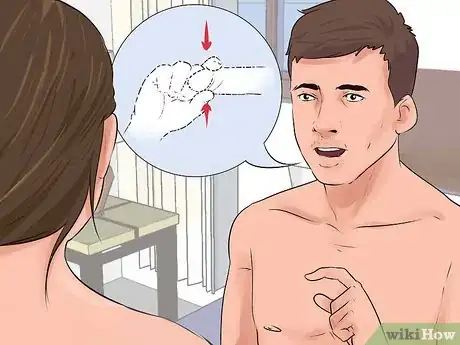
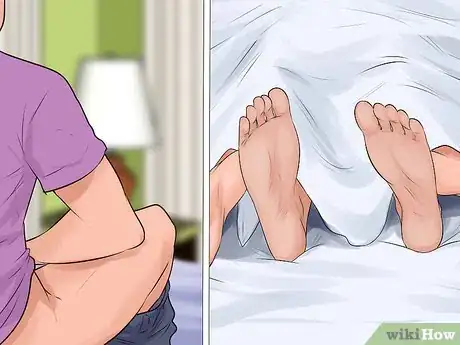



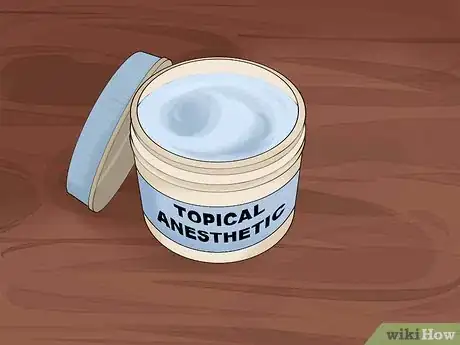



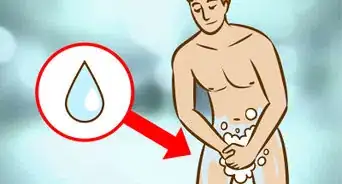
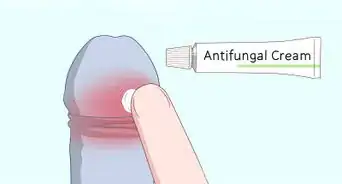
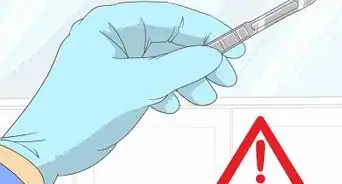
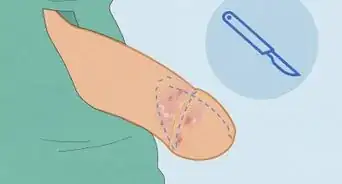


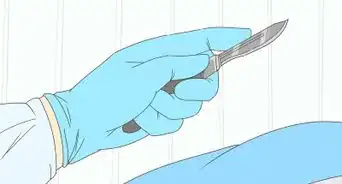

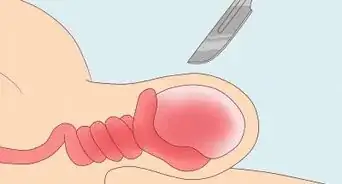

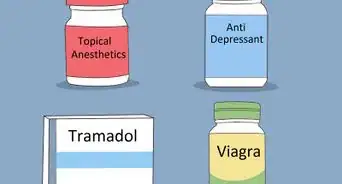
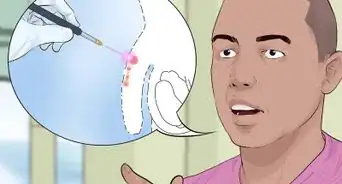
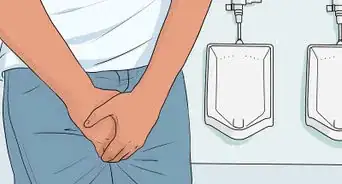












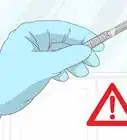
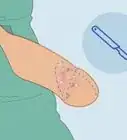



































Medical Disclaimer
The content of this article is not intended to be a substitute for professional medical advice, examination, diagnosis, or treatment. You should always contact your doctor or other qualified healthcare professional before starting, changing, or stopping any kind of health treatment.
Read More...